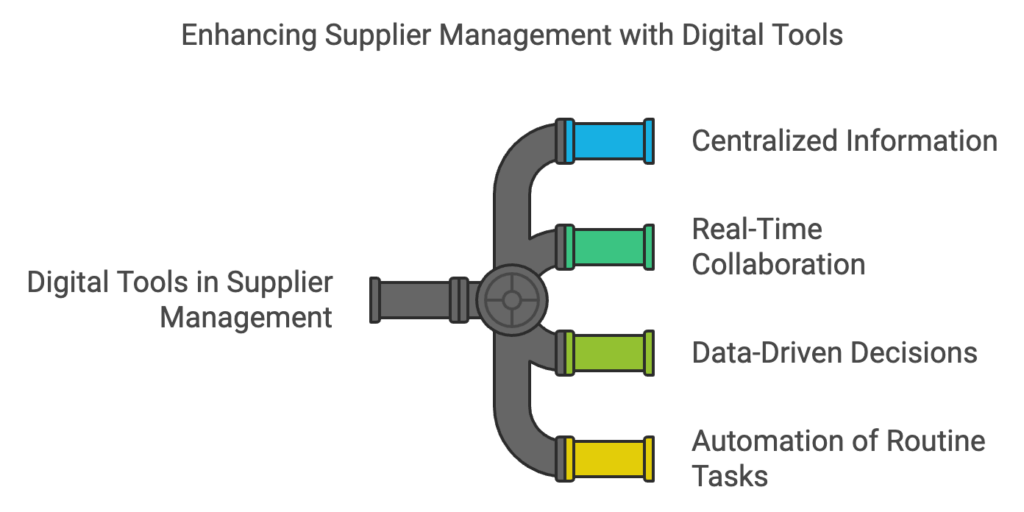Build strong supplier connections to boost your supply chain operations. Smart supplier management brings lower costs, better quality products, and smoother operations. Let’s examine the methods that make supplier management work for your business.
Essential Points in Supplier Management
Strong supplier management reduces expenses and boosts quality. The foundation includes picking the right suppliers, rating their work, and building lasting partnerships. Modern tools speed up the work process. Good practices need clear goals and open talks. Success requires practical plans and building trust. New tools like AI and sustainable methods shape future practices.
What Makes Good Supplier Management Work
Supplier management means rating, selecting, and keeping good ties with suppliers. This makes your supply chain strong, dependable, and budget-friendly. Good management means spending less while getting better products and faster work.
The real value comes from making suppliers your partners, not just vendors. This partnership mindset opens doors to fresh ideas and better ways of working. When businesses see suppliers as teammates, both sides find ways to grow and get ahead of others in the market.
Main Areas of Supplier Management
Managing suppliers needs attention to several key areas:
Selection and rating go beyond finding possible suppliers – they mean checking skills and matching business needs. Look at quality, price, reliability, and how well company values align. Regular checks make sure standards stay high.
Contract talks set clear rules and hopes for both sides. Smart deals can save money while making partnerships last. Good terms help both the business and supplier succeed.
Using Modern Tools for Better Management

Digital tools make supplier management easier and faster. These tools help by:
- Keeping all information in one place
- Working with suppliers in real time
- Using data to make smarter choices
- Making routine jobs run on their own
These tools help spot patterns, catch problems early, and base choices on real data. They speed up basic tasks like orders and bills, giving staff time for bigger projects.
Smart Ways to Manage Suppliers
Good supplier management needs clear goals that match business aims. Share these goals with suppliers so everyone knows what success means. Watch things like delivery speed, quality scores, and money saved.
Clear talk builds trust and solves problems faster. Regular meetings and sharing key updates helps both sides work better together. When both sides share openly, they fix issues quickly and find better ways to work.
Fixing Common Problems
Supply management brings some common issues:
Getting suppliers to use new tools can be hard. Some work across different countries. Keeping information safe needs careful planning. Finding the right mix of computer and human work takes time.
To fix these issues, make clear plans and build supplier trust. Show how new tools help everyone. Give training and start small before going big. Learn about different business styles in other places.
What’s Next in Supplier Management
New methods are changing how we work with suppliers:
Smart computer programs can spot supply problems before they happen. They look at past information and market changes to warn about risks early.
New tracking systems make checking products easier. They help prove products are real and came from good sources. This makes payments smoother and builds more trust.
Final Thoughts
Smart supplier management helps businesses succeed. Building good supplier ties, using modern tools, and following proven methods creates a strong supply system.
Getting better at supplier management takes time and constant work. As you get better, you’ll handle supply chain problems more easily and help your business grow.
Want to make your supplier system better? Check our guide on strategic sourcing to improve your supply chain work.



